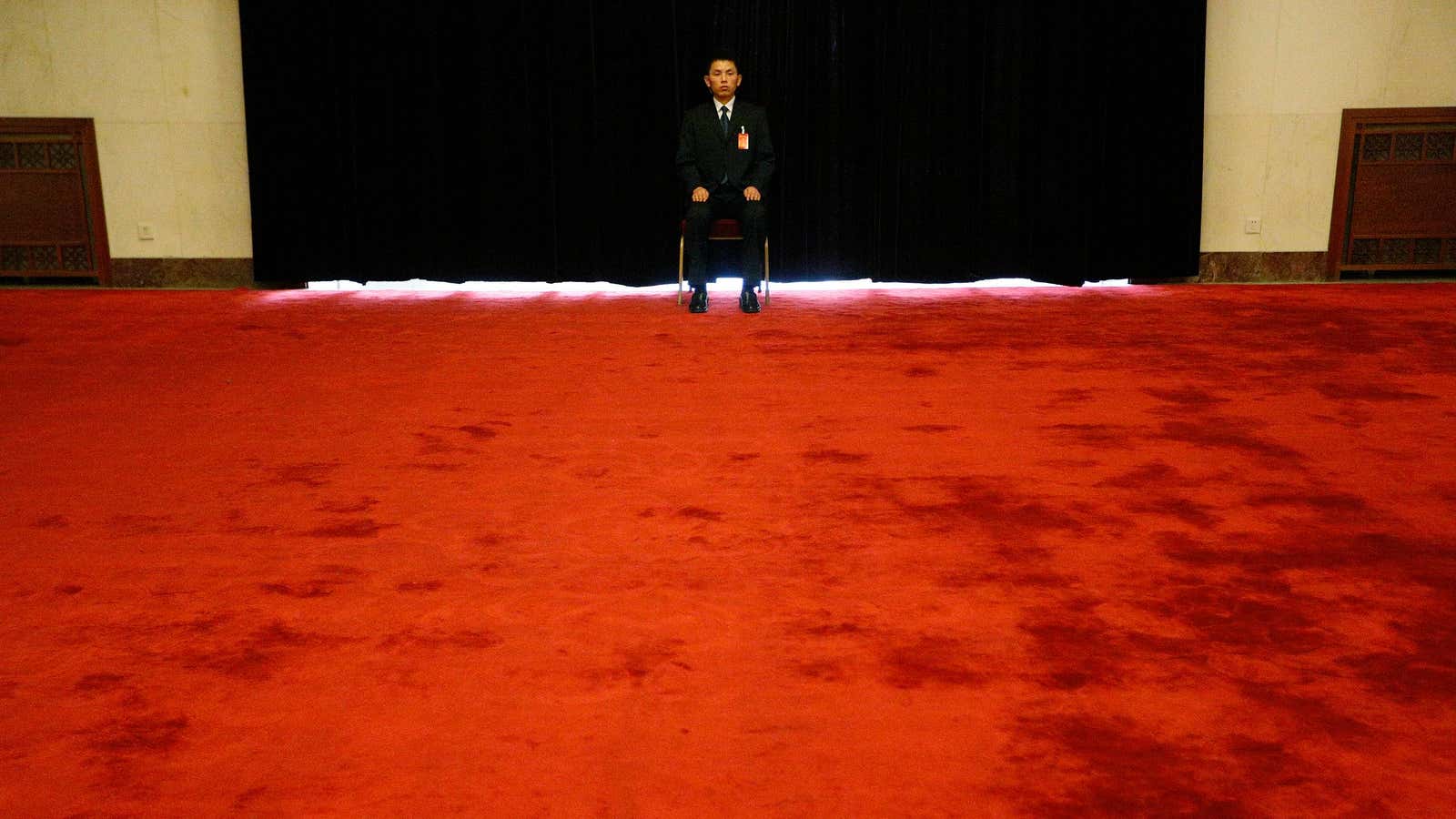China’s biggest political event for a decade is also its biggest secret. With the Communist Party meeting in Beijing for its 18th Congress, the country’s infamous censors are on high alert.
Reporters are not allowed into the event, the occasion of a once-per-decade leadership change. And the government has tried to closely control coverage of the congress and access to information in general. Ping pong balls and pigeons, toy airplanes and balloons are banned. That is in case anti-government activists use such things to smuggle subversive messages to each other.
Online, some recent developments suggest government censors or zealous Chinese hackers have stepped up efforts to limit access to information deemed politically sensitive from within the country.
Here are some of them:
Google access is patchy. On Friday, data on Google’s own transparency report, which provides data on traffic worldwide, showed a marked and unusual drop in traffic from China. Greatfire.org, a website run by anonymous parties which monitors internet censorship in China, reported Nov. 9 that Google was blocked. Google then partially confirmed the report by saying that the plunge in traffic wasn’t due to a fault of its own. Greatfire.org said on Saturday, Nov. 10, that Google’s search function was unblocked, though access to services such as Gmail remained patchy. Google did not immediately respond to a request for comment.
A blog that translates Chinese social media comments into English claims it was hacked and goes dark. Tealeaf Nation, a description of which is visible here on Huffington Post has gone dark. The site is run by a group of Chinese speakers and translates interesting comments from Weibo—China’s Twitter-like microblogging services—and other social media. A post on Tealeaf’s Twitter account from over the weekend said: “Tea Leaf Nation has been hacked; we have taken the site down for our readers’ protection. We will restore the site as soon as possible.”
Bloomberg and the New York Times have experienced blackouts within China recently after they published articles, respectively, on the wealth of the families of likely incoming top Chinese leader Xi Jinping and outgoing premier Wen Jiabao. Bloomberg has appealed for the censorship to end.
(This site claims to test whether a specific website has been blocked in China. Quartz cannot vouch for its reliability.)
Internet access is slow. Since early November, reports have surfaced that web speeds have slowed to a crawl in mainland China. Blog ChinaTechNews.com said Nov. 6 that China’s telecommunications companies were “delivering slower broadband speeds and frustratingly narrower bandwidth to users throughout China.” Expatriates—and wealthy locals who have access to the foreign currency credit cards needed to buy these services—rely on virtual private networks (VPNs) to get around China’s Internet controls, known as the Great Firewall. Now VPN companies are reporting an uptick in blockages and interference in China. Twitter uses, as this thread shows, are increasingly reporting their VPN services are having problems.
The information blackout is intense because attention to the leadership transition is high. Anti-government protests in front of the Great Hall of the People in Beijing, where the Congress is being held, would look embarrassing. So the Party wants to ensure activists cannot communicate.
Some also see a deeper reason for the media crackdown. As Bao Pu, the founder of Hong Kong-based New Century Press, explains here, intensive reporting of discussions at the congress would help political analysts and journalists map details of how leaders of various factions within the party are connected to business. They could then more easily work out and expose how Party leaders acquired their money. That, Bao writes, would be “in stark contrast to the Party’s claims of altruism,” and weaken the image of benevolent leadership the Party seeks to project.




